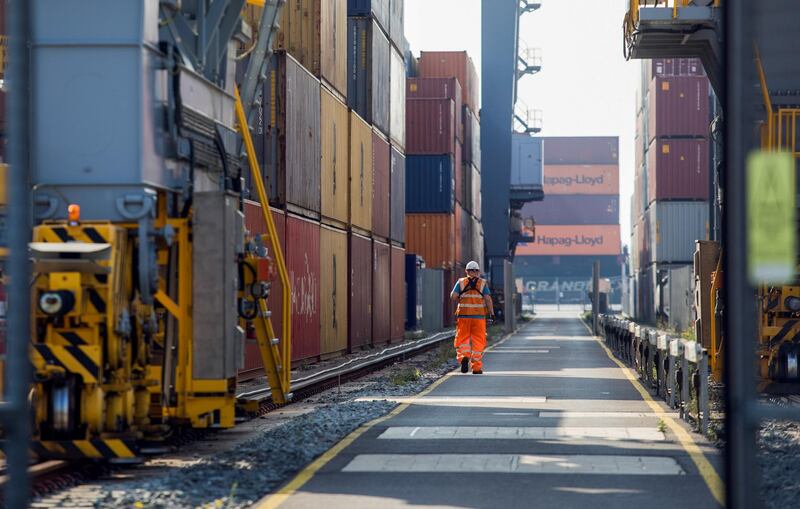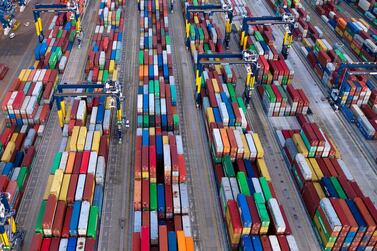A UAE-led plan to create a freeport on the Thames was welcomed by one of London's most deprived communities.
The proposed Thames Freeport – to be located in the Thames Estuary in east London – would include the ports of DP World-owned London Gateway, Tilbury and a Ford factory further west.
Freeport status allows the area to work outside the UK’s normal tax and customs rules.
Imports can enter a freeport with simplified customs declarations and without paying tariffs.
Companies operating within the special economic zone can benefit by deferring the payment of taxes until their products are moved elsewhere in the country, or can avoid taxes altogether if they import goods and manufacture them on site before exporting again.
The UK government wants to create 10 freeports as a way of generating economic activity in the post-Brexit era.
The companies involved in the Thames Freeport say their proposal would bring jobs and investment.
The London borough of Barking and Dagenham, where the Ford plant is located, backed the proposal for that reason.
"This will regenerate an area that has had 50 years of de-industrialisation. It gives us a whole new opportunity to reutilise the Thames again," Barking and Dagenham council leader Darren Rodwell told The National.
“We’ve gone from being the fourth-richest borough in London to the poorest, so we certainly think this is a way of attracting new investment.”
Asked how freeport status created jobs, Mr Rodwell said: “It’s a bit like going through duty free at the airport. If you went to your normal high street you would get all these extra charges, but here you’d be in a duty free area, so investors see that as attractive.”
Alan Shaoul, chief financial officer at DP World in the UK, said the plan would bolster the UK’s economic recovery.
"Freeports will be an effective way of underpinning Britain’s economy post-Brexit and post-Covid by further enabling trade with the rest of the world and creating zones which act as catalysts for commerce, creativity and prosperity,” he said.
“We have global and domestic expertise in freeports, which are part of our DNA. We began as a free trade zone and free port in Dubai, Jebel Ali, and have successfully replicated the concept across the world.”
At least 30 ports and airports around the UK considered applying for freeport status, the Financial Times reported. The deadline for bids in England passed last week, with winners to be announced by the spring.
The consortium behind Thames Freeport sees its proposal as attractive because the area has direct shipping routes to every continent.
There are also 688 hectares of development area in the zone.
Freeport critics say the special economic zones create mini tax havens and excessive deregulation, but the consortium rejected talk that freeports would lead to "a race to the bottom".
“DP World, Forth Ports and the Port of London Authority have signed an industry-wide charter to uphold the highest standards throughout the operation of any freeport,” it said.
The government has publicly stated that the dilution of employment, environmental and social standards is not its intention.






